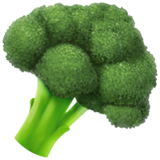Considerations for choosing sulforaphane / glucoraphanin supplements | Jed Fahey
Enter your email to get our 15-page guide to sprouting broccoli and learn about the science of chemoprotective compount sulforaphane.
Broccoli sprouts are concentrated sources of sulforaphane, a type of isothiocyanate. Damaging broccoli sprouts – when chewing, chopping, or freezing – triggers an enzymatic reaction in the tiny plants that produces sulforaphane.

Get the full length version of this episode as a podcast.
This episode will make a great companion for a long drive.
Dietary supplements containing sulforaphane's precursor molecules, glucoraphanin and myrosinase, are widely available to consumers. Myrosinase is an enzyme, however, and may not be shelf-stable without refrigeration, compromising its ability to hydrolyze glucoraphanin to sulforaphane. Although the vast majority of supplement manufacturers do not take steps to preserve the integrity of their products and some have made misleading claims about their products' efficacy, a few reputable manufacturers produce quality supplements that demonstrate beneficial effects against prostate cancer. In this clip, Dr. Jed Fahey discusses concerns about the sulforaphane dietary supplement industry and offers advice about how to choose quality products.
Jed: And, in fact, there are now companies that are selling glucoraphanin plus myrosinase. You have to be careful if you buy those supplements because it's not a given that they're going to be as stable as multivitamins and things that you can just leave on the shelf for years.
So you need to pay attention to the expiration dates on those products that have live active enzyme. I'm not in the supplement business, but I've become more and more familiar with it. Most supplement makers, it appears, don't like to sell stuff that has to be refrigerated or put in a freezer. I think it increases their cost. And so most of the supplements that I'm aware of are made to be shelf-stable, but I think it won't... If you were to buy a supplement that has active myrosinase or that says they have active myrosinase, I think it wouldn't hurt to put them in a refrigerator, treat them as you would treat a probiotic supplement.
Rhonda: And you've actually measured the content of glucoraphanin and/or sulforaphane in some of these supplements that are found on the market. Is that correct?
Jed: We have. We have.
Rhonda: And you found that there's only a really small amount of supplements that actually contain what they say they contain?
Jed: Yes.
Rhonda: I think one of them you mentioned was a French company that has actually sulforaphane in it, Prostaphane?
Jed: Yes. So I've actually been told that there...and I think it was someone in the industry that told me this, that there are something, like, 1,000 supplements that claim to have broccoli sprouts or broccoli extracts in them that are on the market now. I certainly it would take me all of my waking hours to try to vet that statement and validate the content of each of them. But, in our lab, we have looked at a number of supplements. Some of those that are more prominent or that you see advertised or some of those that we've been aware of because we know people that have asked us about them. And many of them 20 years ago, there were a bunch of supplements that said they have sulforaphane and sulforaphane cures cancer because John Hopkins says so. This is highly inaccurate and they should have been taken to court. But you can't make statements like that. Nobody has shown that any of these supplements prevent cancer or cure cancer. We certainly hope to be part of the group of scientists who are able to put some teeth behind that evidence and, eventually, I think one day it may be shown that in people, cancer can be prevented by taking something like sulforaphane, but that has not been proven to date.
So anyway, to get back to your question, we have looked at a variety of supplements. Twenty years ago, when they started coming out, there were many supplements that we could demonstrate were not even broccoli sprout or broccoli. It had no broccoli in them yet they said they were broccoli supplements. People were selling what they called broccoli seeds and when you actually grew them out and grew plants from them, you grew cauliflower or you grew canola or rapeseed from them or something else. Or in some more egregious cases, we found stuff that was sold as broccoli seeds that was really alfalfa seeds. So a lot of liberties were taken, a lot of shysters were on the market. I think that's cleaned up somewhat now, but now there are a ton, and as I say, I was told a 1,000, but many, many, many supplements that say they have sulforaphane or glucoraphanin in them.
We have analyzed a small number of them, those that are made by labs or companies that we've read and heard good things about that haven't been challenged by the FDA for sanitation problems or for mislabeling. And there are supplements that contain glucoraphanin alone, there are a few now that contain glucoraphanin plus myrosinase and there are a few that contain sulforaphane. We are publishing this, should be out in the next week or two, a paper in which we actually look at the bioavailability of sulforaphane from a French supplement that is called Prostaphane. There's been at least one publication that looked at its ability to change the PSA trajectory in men who have had prostate cancer.
Rhonda: And that's a biomarker for prostate cancer?
Jed: It's a biomarker for prostate cancer return rate. And so those tablets, they're tablets that should be refrigerated to prolong the life of the sulforaphane in them. The bioavailability of the sulforaphane from those tablets was essentially identical to that from powders that we made in the lab by extracting broccoli sprouts and treating them with myrosinase and freeze-drying them.
Rhonda: That's very impressive.
Jed: So we were delighted to see that they worked. Yeah. Unfortunately, they're not being sold in the U.S. I hope that one of the supplement companies can... I hope that somehow or another business, the business of supplements gets them to this country.
The extent and rate at which drugs or other substances, such as plant-based dietary compounds, enter the body’s circulation. Bioavailability is influenced by a variety of factors, including dose, the presence of other foods or substances, and interindividual differences in metabolism due to gut absorptive surface and commensal microbial populations.
A measurable substance in an organism that is indicative of some phenomenon such as disease, infection, or environmental exposure.
Any of a group of complex proteins or conjugated proteins that are produced by living cells and act as catalyst in specific biochemical reactions.
A glucosinolate (see definition) found in certain cruciferous vegetables, including broccoli, Brussels sprouts, and mustard. Glucoraphanin is hydrolyzed by the enzyme myrosinase to produce sulforaphane, an isothiocyanate compound that has many beneficial health effects in humans.
A family of enzymes whose sole known substrates are glucosinolates. Myrosinase is located in specialized cells within the leaves, stems, and flowers of cruciferous plants. When the plant is damaged by insects or eaten by humans, the myrosinase is released and subsequently hydrolyzes nearby glucosinolate compounds to form isothiocyanates (see definition), which demonstrate many beneficial health effects in humans. Microbes in the human gut also produce myrosinase and can convert non-hydrolyzed glucosinolates to isothiocyanates.
An isothiocyanate compound derived from cruciferous vegetables such as broccoli, cauliflower, and mustard. Sulforaphane is produced when the plant is damaged when attacked by insects or eaten by humans. It activates cytoprotective mechanisms within cells in a hormetic-type response. Sulforaphane has demonstrated beneficial effects against several chronic health conditions, including autism, cancer, cardiovascular disease, diabetes, and others.
Attend Monthly Q&As with Rhonda
Support our work

The FoundMyFitness Q&A happens monthly for premium members. Attend live or listen in our exclusive member-only podcast The Aliquot.
Sulforaphane News
- Sulforaphane extends lifespan and healthspan in worms via insulin and insulin-like growth factor-1 signaling.
- Paul Saladino, MD explains how we may have overstated the health benefits of plants and especially sulforaphane
- NRF2 much of a good thing (December 2017)
- A pilot trial finds sulforaphane treatment increased glutathione levels in the blood & hippocampus region of the brain in healthy people.
- A new study found sulforaphane (found in broccoli sprouts) improved behavior & social responsiveness in children with autism.





































































